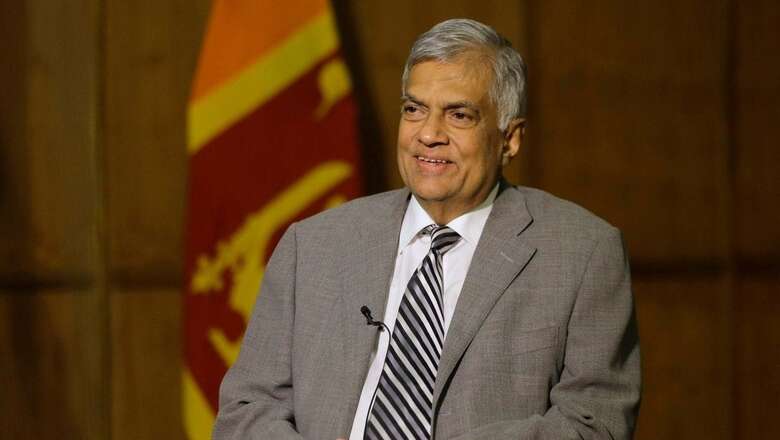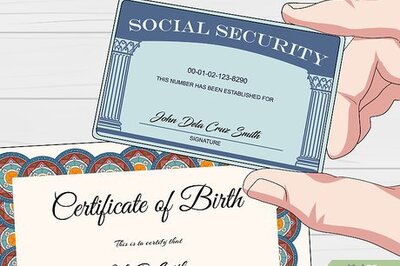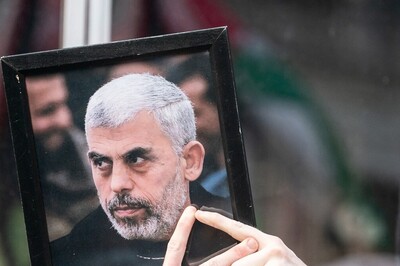
views
President Ranil Wickremesinghe on Wednesday underlined the need to “reassess” Sri Lanka’s foreign relations in tune with geopolitical trends and to maximise economic benefits for the bankrupt nation.
President Wickremesinghe, during his policy speech at the opening of the new session of Parliament, said a programme that has already been initiated to develop Trincomalee as an economic hub in collaboration with India as a key component of this.
“It is imperative to reassess our foreign relations in light of current needs and geopolitical trends,” Wickremesinghe said and added, “The restructuring of foreign relations should prioritise leveraging economic potentials.”
“Therefore, adopting new foreign policies that enhance the country’s economic strength and fostering non-aligned policies and friendships with all states is crucial. The direction of our foreign policy is evolving to align with the contemporary era,” he said.
He highlighted the steps taken so far “to establish a new network of economic relationships that facilitate our products’ entry into foreign markets,” and added that the goal is to forge free trade agreements (FTAs) with numerous countries.
Incidentally, Sri Lanka’s Foreign Minister Ali Sabry on Tuesday had said it has plans to establish an FTA with India by the end of 2024 even as similar Free Trade Agreements would be worked out for Indonesia, Malaysia, Vietnam, and China too by the year’s end.
A recent free trade agreement was signed with Thailand and the free trade agreement with Singapore is fully operational.
Sri Lanka also hoped to join the Regional Comprehensive Economic Partnership (RCEP), the President said, adding, “We will connect with the common system of trade variations in the European Union (EU).”
Sri Lanka and India resumed talks on the Economic and Technology Cooperation Agreement in Colombo at the 12th round in October last year.
The original talks were stalled after several rounds of talks between 2016 and 2018 due to political and trade union opposition.
“The main reason behind Sri Lanka’s export struggles is its limited market access. While focusing primarily on the domestic market, countries like Vietnam and Bangladesh actively expanded into larger international markets through FTAs. This strategic move fuelled their export-driven growth, leaving Sri Lanka behind,” Sabry had said on Tuesday.
In April 2022, after Sri Lanka declared its first-ever sovereign default since gaining independence from Britain in 1948, the then President Gotabaya Rajapaksa was thrown out through a public agitation and the incumbent President Ranil Wickremesinghe took over.
He put in place unpopular economic reforms to supplement a bailout from the International Monetary Fund.



















Comments
0 comment